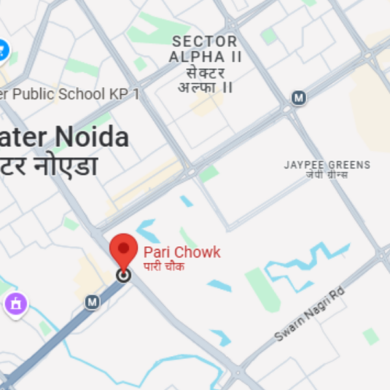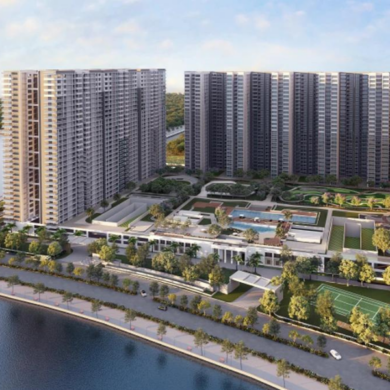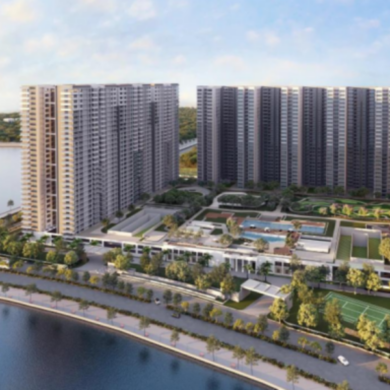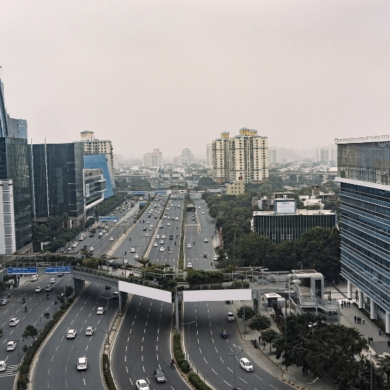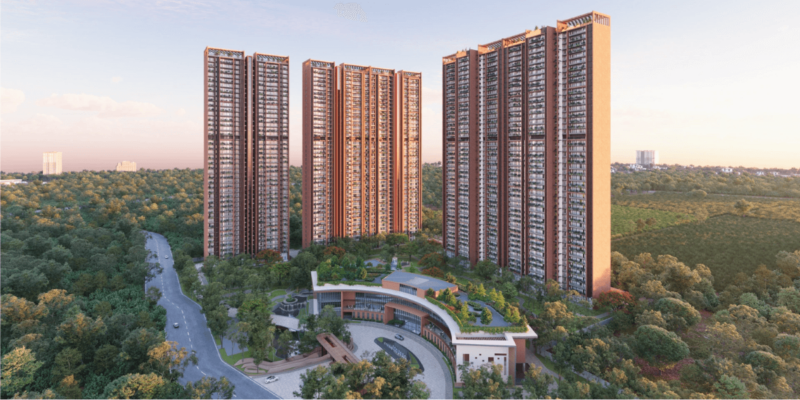
Living in an apartment offers advantages such as convenience, security, modern amenities, and well-managed maintenance – making it ideal for professionals and families. However, consider possible cons before taking a decision.
In today’s fast-growing urban centres, apartment living has become the preferred choice for many. Whether in Bangalore, Pune, or Delhi NCR, luxury gated communities shape the residential skyline. This popularity comes from both convenience and financial benefits. However, it is vital to evaluate the pros and cons of living in an apartment before deciding.
From working professionals to first-time buyers and families, understanding the comforts and compromises of apartment living can help with making the right investment. Whether you are planning to rent or buy; your living environment directly impacts your daily lifestyle and long-term satisfaction. In this blog, you can explore both – the advantages of apartment living and disadvantages of living in an apartment – and decide what suits your needs best.
Table of Contents
7 Pros of Living in an Apartment
1. Diverse Pricing compared to Independent Houses
Compared to villas in the same area, flats are available in diverse prices – with no difference in luxury and comfort. You pay a single maintenance fee for water, security, and upkeep of amenities in the gated community.
For tenants or first-time buyers, this makes renting / owning a home more realistic. It is an ideal solution for those looking for value, convenience, and long-term savings without compromising on quality of life.
2. Low Maintenance Lifestyle
Another major advantage of apartment living is the reduced personal maintenance responsibility. Apartment complexes are maintained by dedicated facility management teams that take care of landscaping, plumbing, lighting, and cleaning of common spaces and amenities. You do not need to spend time getting walls repaired, managing drainage issues, or hiring multiple service providers.
This model is beneficial for professionals, senior citizens, or those who travel frequently. While comparing the benefits of apartments, this convenience stands out as a major benefit for residents who prefer a hassle-free lifestyle.
3. Security and Safety
Modern residential complexes offer 24/7 guarded entry points, intercom systems, CCTV surveillance, and biometric access to ensure resident safety. This comprehensive safety net provides peace of mind – especially for families, elderly residents, and individuals who live alone.
Emergency response is quicker due to proximity to neighbours and security staff. Among the many advantages of apartment living, the sense of safety gives an edge. Whether you work late hours or live with children, safety systems are a strong reason to opt for this property type.
4. Amenities and Facilities
Luxury gated communities are designed with a wide range of amenities for all age groups – such as clubhouses, swimming pools, gyms, sports facilities, children’s play areas, multifunctional halls, recreational areas, landscaped parks, and more. These conveniences improve your lifestyle, while saving time and costs.
Whether it is yoga classes, evening walks, or weekend games, your apartment complex caters to diverse hobbies and interests. While weighing the pros and cons of living in an apartment, access to modern amenities provides a complete living experience that independent homes cannot offer, even with higher costs.
5. Prime Location and Connectivity
This adds excellent value, making day-to-day city life more manageable and efficient for residents across age groups. Apartments are usually built in well-connected areas, close to workplaces, schools, hospitals, and entertainment hubs. This is one of the strategic advantages of apartment living in cities where traffic and commute times are high.
Living near major roads or transport hubs reduces stress and gives you more personal time. Leading developers choose premium locations for their projects, ensuring easy access to essential services. This helps working professionals manage time better, and families benefit from the convenience of nearby schools and clinics.
6. Sense of Community
Apartments create a social fabric that is missing in many standalone homes. Community spaces, festivals, and events promote bonding and interaction among residents. This feeling of belonging is a powerful advantage of apartment living, especially in urban environments where isolation is common.
Children find playmates easily, while adults build a support network through RWAs and events. Morning walks, festive decor, and group activities create a vibrant lifestyle in a gated community. While evaluating the pros and cons of living in an apartment, community support is an important aspect as it enhances mental well-being and emotional security – particularly for nuclear families, elderly residents, and individuals living alone.
7. Flexibility and Rental Options
Apartments offer great flexibility for people who relocate frequently. Whether you are a corporate professional or student, renting an apartment is easier than finding an independent house. Property owners and tenants benefit from consistent demand, making this one of the key advantages of apartment living.
Maintenance support and security systems also make flats more attractive to tenants. Flexibility adds to long-term convenience, especially for individuals not yet ready to commit to one city or neighbourhood. Apartments meet short-term housing needs, without compromising on safety or amenities.
5 Cons of Living in an Apartment, and their Solutions
1. Limited Space
This can feel restrictive, especially for growing families or those needing more room. While evaluating pros and cons of living in an apartment, the need for spacious interiors should be considered.
Solution: Look for apartments with 3BHK or 4BHK configurations that provide open floor plans, additional rooms, world-class amenities, and coworking spaces to enhance the living experience.
2. Lack of Privacy
Another disadvantage of living in an apartment is reduced privacy with shared walls, common corridors, and adjacent balconies. Noise from neighbours and limited access to common areas can disrupt solitude.
Solution: Choose luxury developers who address privacy concerns, offering layouts with no door-facing and minimal common walls for enhanced solitude.
3. Restrictions and Rules
Apartments come with a predefined set of rules specified by the developer or the RWA. From pet ownership to noise limits, renovation restrictions, and parking policies, your freedom as a homeowner may be limited.
Solution: Look for gated communities with flexible policies, such as those offering pet parks and expansive parking lots. Luxury developments provide more freedom and fewer restrictions, ensuring better living experience.
4. Parking Limitations
This disadvantage of living in an apartment can cause inconvenience, especially during gatherings. In high-density urban areas, finding safe parking alternatives for extra vehicles or guests becomes a challenge.
Solution: Choose luxury gated communities that provide ample parking spaces including additional slots for guests and extra vehicles, ensuring convenience and peace of mind.
5. Dependence on Developer or Management
Poor communication or delayed maintenance can affect living standards. A disadvantage of living in an apartment is relying on the developer or property management for services and repairs. While evaluating the pros and cons of living in an apartment, developer reliability plays an important role in long-term satisfaction.
Solution: Choose developers with strong track record of reliable services and effective property management, to ensure consistent maintenance and timely repairs.
Conclusion: Should You Live in an Apartment?
Choosing where to live involves more than just evaluating floor plans; it demands a practical look at the pros and cons of living in an apartment. On one hand, you benefit from security, community, modern amenities, and well-managed maintenance. On the other hand, limited space and privacy might not suit everyone.
Multiple advantages of apartment living make them ideal for working professionals, nuclear families, and those seeking convenience in urban locations. Though there a few disadvantages of living in an apartment, it is more about choosing the right developer, so that you need not make any compromises with your comfort and luxury.
Ultimately, the right decision depends on your lifestyle, financial plans, and personal priorities. Whether renting or buying, take time to evaluate what matters the most before making your move.
FAQs
1. What are the key benefits of living in an apartment?
Key benefits of living in an apartment are modern amenities, managed maintenance, enhanced security, prime location, social connectivity, and flexible rental options.
2. What are the common drawbacks of apartment living?
The common drawbacks of apartment living are minimal – such as reduced privacy, restrictive community rules, limited space, parking challenges – but can be mitigated by choosing the right developer.
3. Is apartment living more affordable than owning an independent house?
Yes, apartment living is more affordable than owning an independent house, due to lower upfront costs, shared infrastructure, and consolidated maintenance fees that reduce overall expenditure – which are some of the key advantages of apartment living.
4. How much privacy can I expect in an apartment?
You can expect a good level of privacy in an apartment, which is achieved through well-designed layouts, soundproof windows and doors, private balconies, and restricted access to common areas; all while offering the benefits of community living.
5. Are modern apartments safe and secure?
Yes, modern apartments are safe and secure, as they come with gated entry, 24/7 patrolling, trained personnel, CCTV surveillance, and access control systems.
6. What kind of amenities are offered in apartment complexes?
Amenities offered in apartment complexes are clubhouses, swimming pools, gyms, landscaped gardens, play areas, and sports courts.
7. Do apartment buildings have strict rules and regulations?
Apartment buildings may have strict rules and regulations related to noise, pets, renovations, and visitor limits – depending on the developer and RWA.
8. Is living in an apartment suitable for families with children?
Yes, living in an apartment is suitable for families with children, due to the presence of play areas, community events, built-in safety measures, and supportive neighbourhood environment.
9. What should I consider before choosing an apartment to live in?
Before choosing an apartment to live in, consider location, space, maintenance structure, developer reputation, amenities, privacy level, and future flexibility.
10. Are apartments a good option for long-term living?
Yes, apartments are a good option for long-term living, if you value convenience, security, community support, and access to essential services within a manageable budget.

